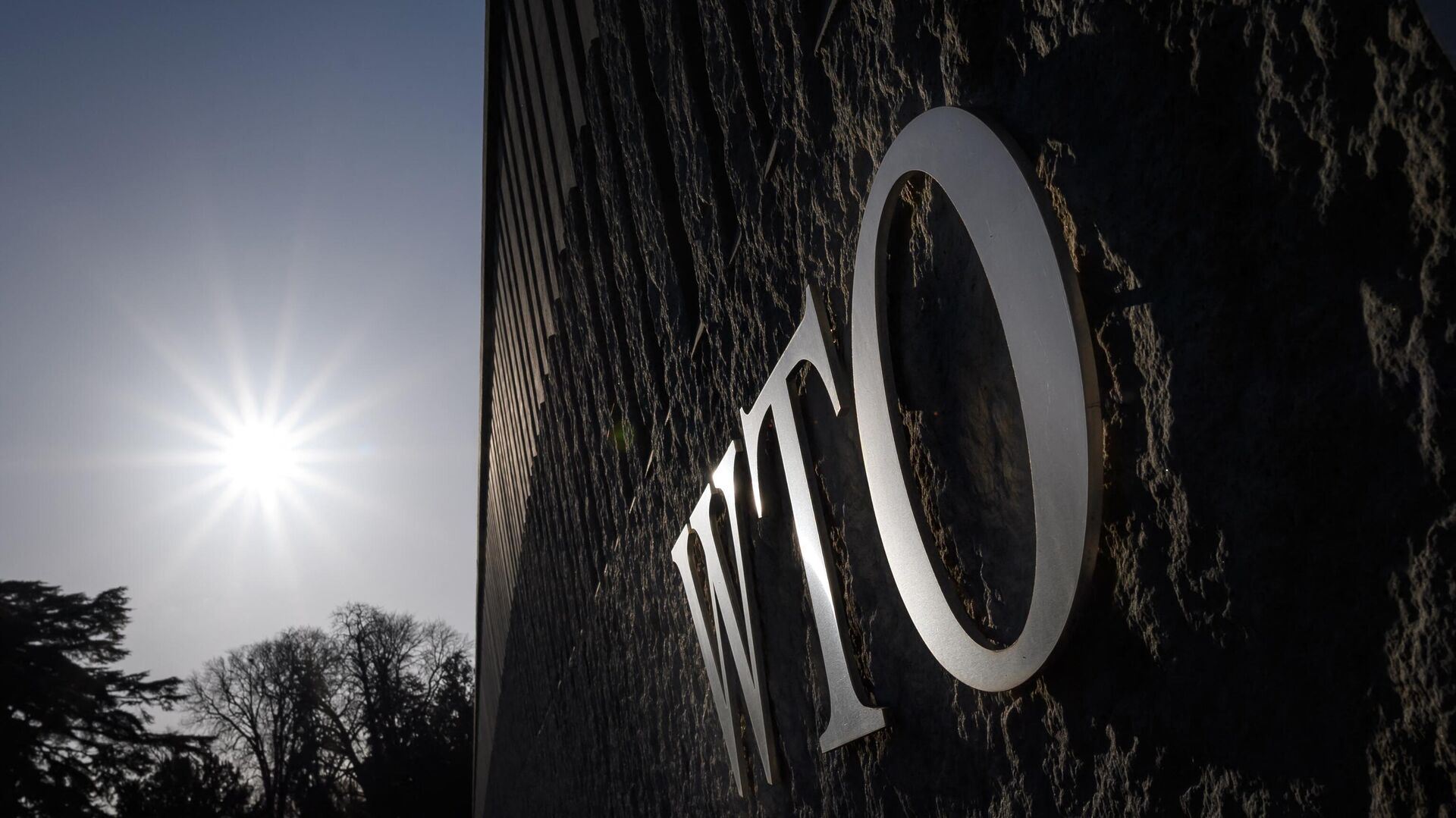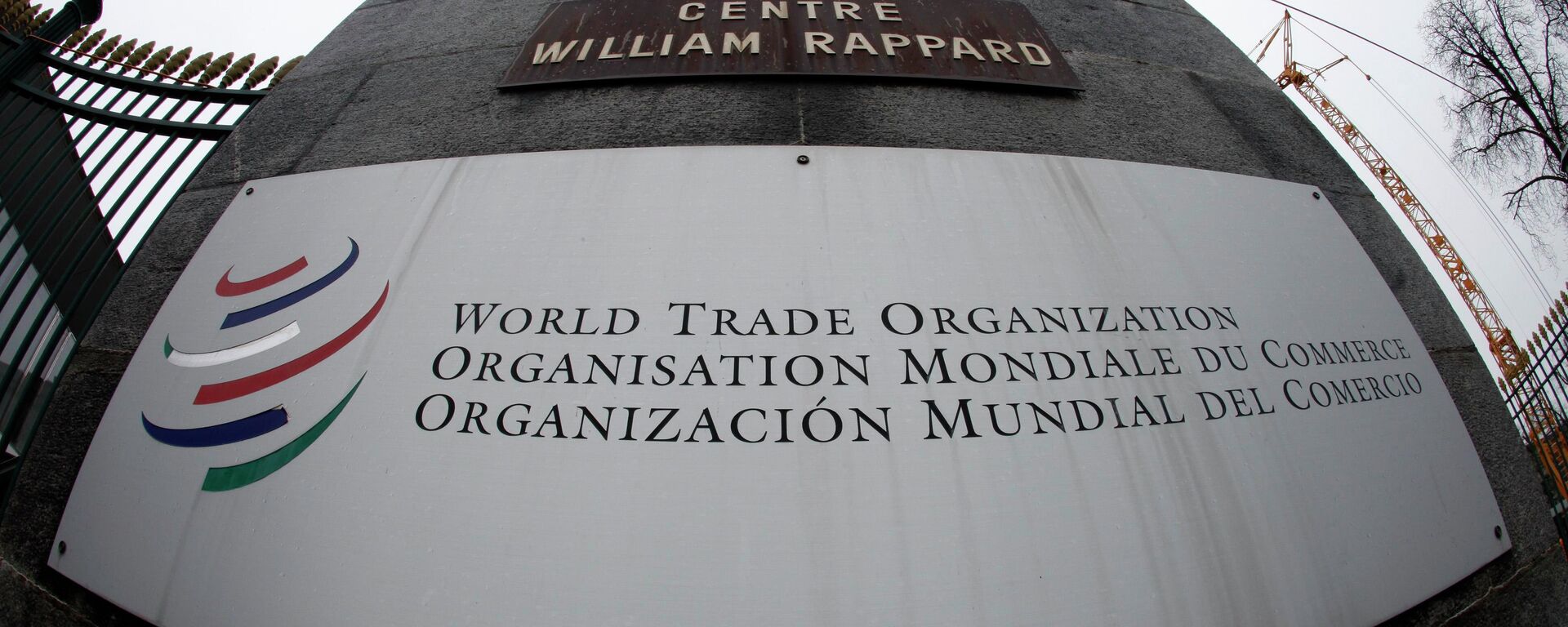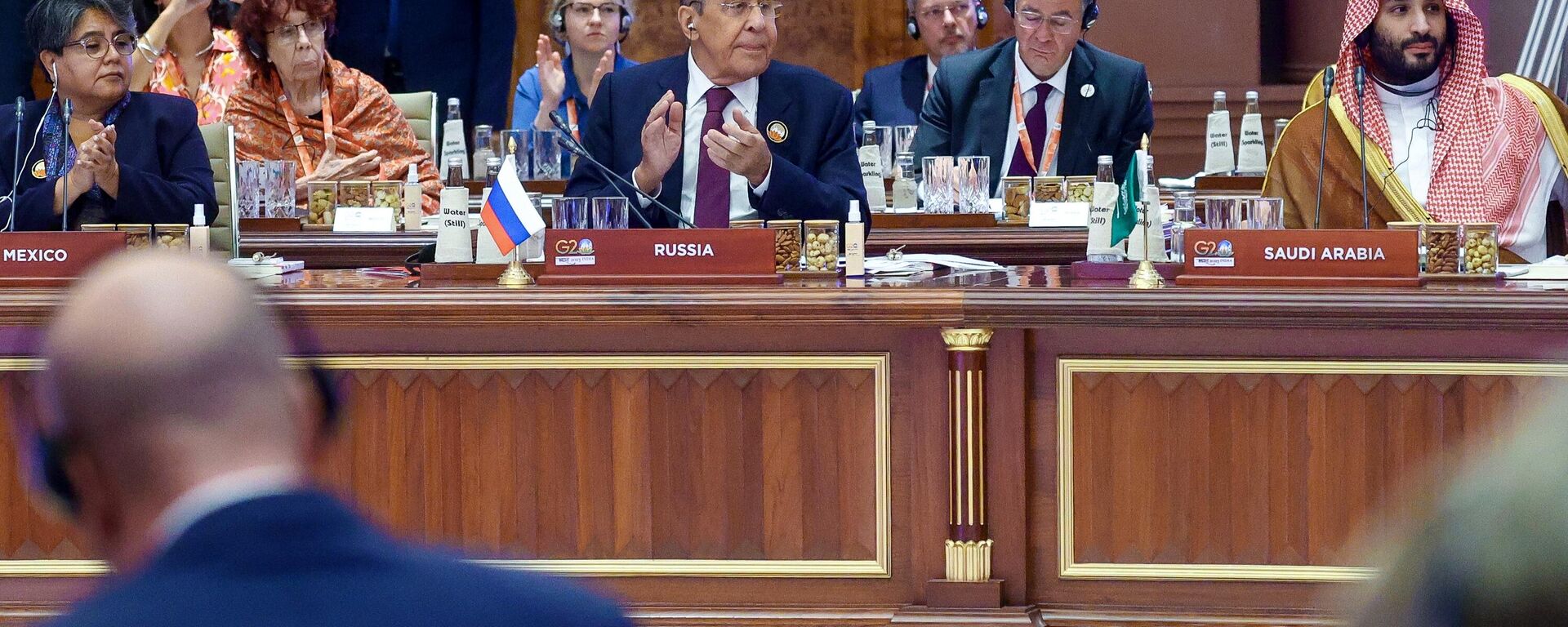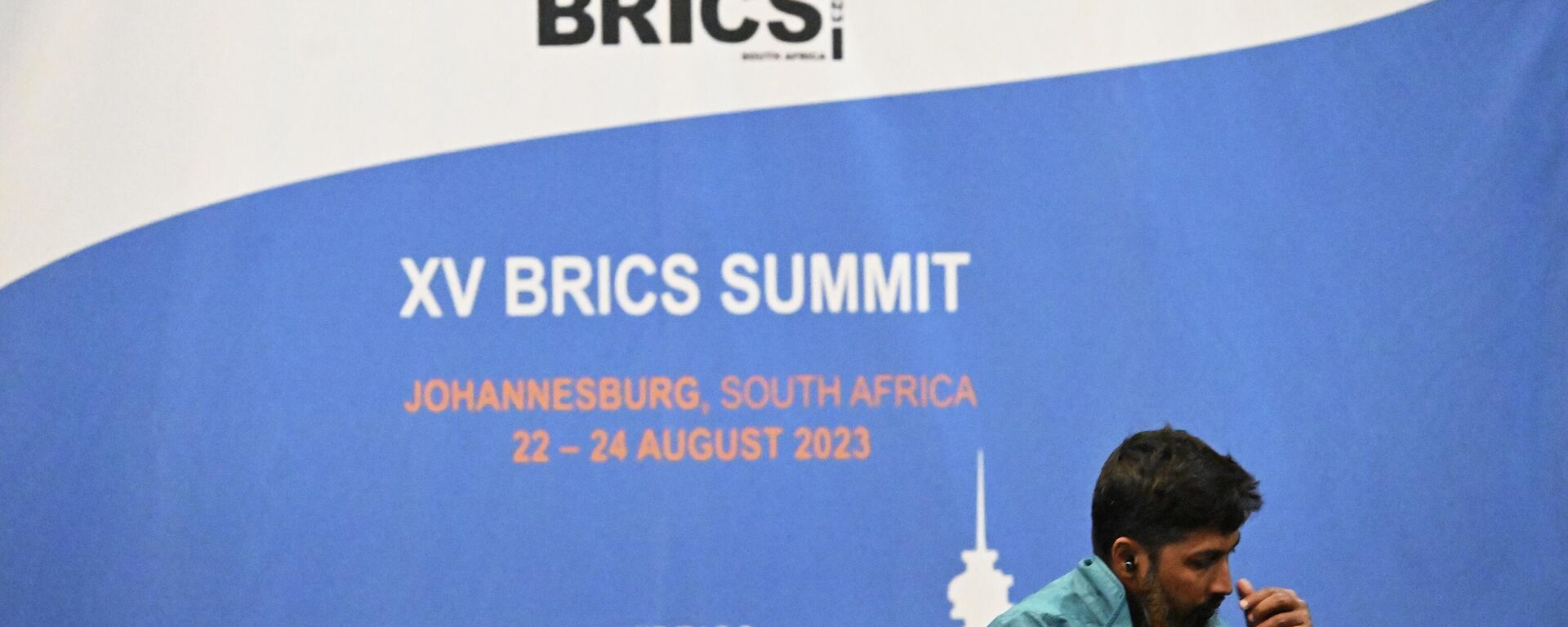G20-Proposed WTO Reform Poses 'Huge Challenges' for 'Divided World'
08:55 GMT 10.09.2023 (Updated: 09:39 GMT 10.09.2023)

© AFP 2023 / FABRICE COFFRINI
Subscribe
The joint declaration announced after day one of the two-day G20 summit in New Delhi, India, on Saturday, contained an agreement to work on reforms to the World Trade Organization (WTO) ahead of the intergovernmental organization's ministerial meeting slated for February next year.
The attempt to reform the WTO “will present huge challenges,” Robinder Sachdev, a geopolitical and economic diplomacy analyst, founder and president of the Imagindia Institute, a New Delhi-based think tank, told Sputnik.
He applauded the fact that the “intent” was there, adding that the need for reform of the body was obvious given that “the world is getting more complicated, and more divided.” Indeed, as the recent BRICS summit showed with particular clarity, Western-centric groups are beginning to cede global leadership to the multipolar world organizations, predominantly spearheaded by Russia, China and India.
At the New Delhi Summit on Saturday, G20 members called for reforming the World Trade Organization (WTO).
"We reiterate the need to pursue WTO reform to improve all its functions through an inclusive member-driven process, and remain committed to conducting discussions with a view to having a fully and well-functioning dispute settlement system accessible to all members by 2024," stated the G20 declaration.
The reforms would include building trust in the multilateral trading system, and dealing with the currently paralyzed WTO dispute settlement mechanism, which should function smoothly and be accessible to all members by 2024, as per the G20 statement.
Looking ahead, the G20 leaders voiced their commitment to working constructively to achieve positive outcomes at the WTO's Thirteenth Ministerial Conference (MC13), set to take place next February in Abu Dhabi.
The WTO was created with the goal of liberalizing international trade and regulating trade and political relations among member states. The organization currently unites 164 countries, Russia officially joined on August 22, 2012 after 18 years of negotiations.
However, the WTO has been mired in an internal crisis for years. Under then-US President Donald Trump, Washington blocked new appointments to its Appellate Body amid trade disputes with China. Already during the tenure of the 45th POTUS, it was suggested that the WTO was in need of major reform, with Trump accusing it of "unfair treatment". Furthermore, the Republican president had even warned that Washington might withdraw from the organization, if it didn't "shape up." As a result, the standing body has been unable to review appeals on top international trade disputes given its vacancies for more than two years.
The WTO needs reform, without doubt, Robinder Sachdev reiterated. “There is a problem in the global trade mechanism," the analyst pointed out, singling out “barriers in trade of two kinds: tariff and non-tariff" ones.
“The tariff barriers - import duties, customs duties, etc… That's one part that will be easier to solve, maybe. What will be more difficult are the non-tariff barriers,” the geopolitical and economic diplomacy analyst said.
He went on to clarify that non-tariff barriers, again, are of two categories. There are those that are “systemic to a nation,” such as customs clearance that might “take hours and days at any point..., or paperwork bureaucracy, etc.” According to Sachdev, there is also a category of non-tariff barriers that “nations put forth in order to seem in compliance with the tariff barriers,” while not wanting to “proceed... with a trade agreement.”
So, great as the idea of the G20-proposed "recalibration" of the WTO is, it faces huge challenges against the backdrop of global trade dynamics currently “driven more by geopolitical interests,” Sachdev underscored.
The fact that G20 members have agreed on the importance of reforming the WTO is very important, agreed Ari Sitas, Professor of Sociology at the University of Cape Town, who was the Chairperson of the South African BRICS Think Tank in 2014-2019.
“It is the collapse of the Cancun negotiations of the WTO in 2003 that started the process of new 'bloc formations'. The fact that the WTO accepted double-standards in protecting Western (especially agrarian interests) and trying to impose free trade and no protection on developing societies was the springboard for the emergence of IBSA (Indian, Brazil and South African cooperation), and as summits followed summits, the emergence of BRIC and then BRICS,” Ari Sitas underscored.
The Professor of Sociology added that there were many questions that this planned reform of the WTO gave rise to, such as:
“What would the move away from the centrality of the dollar mean in trade transactions? Can US’ s unipolar ambition find common ground with the demand for a multipolar system?”




